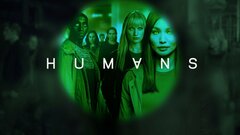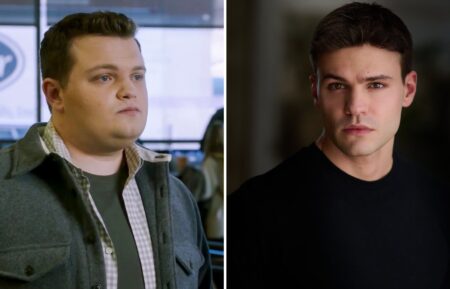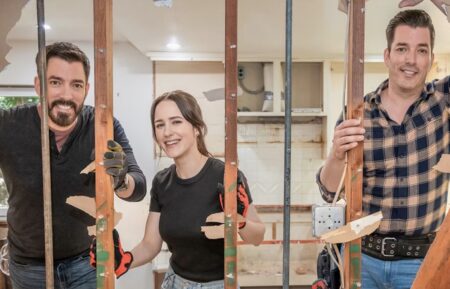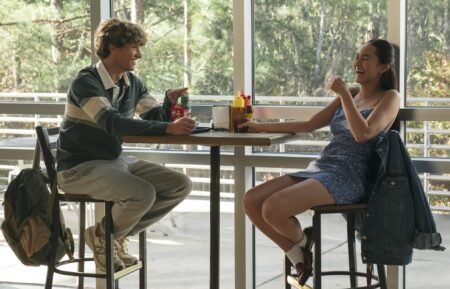‘Humans’ Season 2: Will the Conscious Synths Bring the End of Humanity?
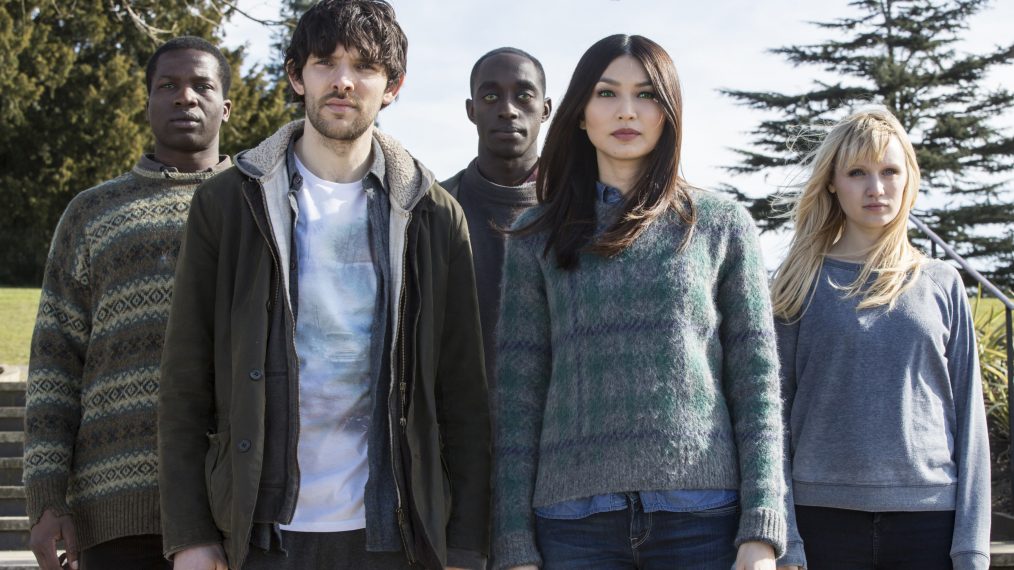
Synth alert! They have awakened and it probably won’t be too good for humanity.
That’s the dark turn that Humans, AMC’s critically praised series about the lifelike robots living among us in the not-too-distant future, takes when it returns in February. And it’s no surprise, executive producer Jonathan Brackley reminded a full house at the show’s New York Comic Con panel on Friday night.
In last season’s cliffhanger a “family” of AI’s created—by linking their minds—a “consciousness code” that would give so-called Synths a human self-awareness that would allow the sophisticated machines to feel emotion and be free to make their own choices. Niskia (Emily Berrington), the angriest of the group, was last seen leaving on a mission to share the code (now hardwired into her components) with her fellow synths.
RELATED: Humans Producers Discuss the Season 1 Finale
The speculative fiction’s first season focused on two families: the human Hawkins, and the synth “siblings” of Anita, aka Mia (Gemma Chan), the domestic robot they owned. Season 2, as demonstrated by a clip previewed at the NYCC panel, paints a broader picture as the new consciousness spreads.
To tell that wider story, new characters come on board in February. Carrie- Anne Moss (Jessica Jones) plays AI expert Dr. Athena Morrow, with “an agenda of her own,” Brackley said. She works for billionaire tech entrepreneur (played by Marshall Khoury) A
lso joining the cast: Nashville’s Sam Palladio as café owner Ed, “a human who’s trying to keep his family business afloat,” Brackley said. “He meets Anita/Mia, treats her like a human and they have a cool interesting relationship.” For the British actor, who spent five years living in Nashville, “playing an Englishman again and not having to put on a Texas accent and sing country songs, is very nice.” But assuming that identity was nothing compared to playing a synth. “My jaw dropped the first time I did a scene with Gemma.”
RELATED: More News From New York Comic Con
Chan admitted that after her time off between seasons, she was “really, really, rusty” at moving like a synth again. She wasn’t the only one. The android actors went back to “synth boot camp,” she revealed, for a week of movement therapy. If you want to act like a synth, she shared, “Don’t look down at your feet when you walk, which is very scary when you’re going down a side of a cliff like I had to do.,” before adding with a laugh, “You don’t see the outtakes of me falling down the stairs or bumping into the set. You don’t see me as clumsy robot.”
While humans are trying to figure out how to deal with the new independent androids, the synthetic beings have to learn how to be human. And it’s more than just walking like a homo sapiens. “Mia is figuring out who she is, “Chan revealed. “She wants to start asserting herself.” Meanwhile, said Colin Morgan who plays her “brother” Leo, a human/synth hybrid, “is in a much more settled place. He’s found a home base where he can work to form a better future.”
Tom Goodman-Hill, aka Joe Hawkins, the paterfamilias who blew his marriage apart when he cheated with Anita/Mia, says he and the rest of the Hawkins are very much still in the picture. “The family is making a fresh start with a new larger home outside town, but there are emotional scars after the departure not only of Mia, but of the whole Synth family. “It would be foolish if we didn’t find a way to bring them back together,” noted executive producer Sam Vincent.
Though Humans has always explored what it means to be a human being, this season, Vincent added, the ethical questions concerning artificial intelligence really hits home. “If something has the ability to be conscious, is our moral imperative to grant it? That opened up a whole new sense of the story.”
Though the producers and most of the actors on the panel were guardedly optimistic (or at least sanguine) about the rise of machines, Goodman-Hill was the doom and gloom spokesperson. “This scares the willies out of me,” he admitted.
Along those lines, one fan asked: “How long do the experts you’ve consulted believe it will be until the Singularity?” In other words, Vincent explained, when will we reach the point when we create a machine that could improve itself, even replicate itself, so they wouldn’t need us any more? The consensus scientific opinion, he noted, “is 40 to 50 years.” Or as Chan chillingly put it, “We’ll end up becoming the ants that we crush under foot because they’re so irrelevant to us.”

